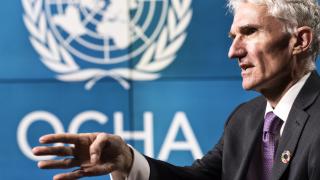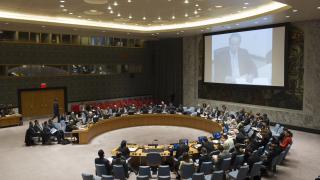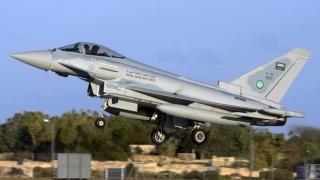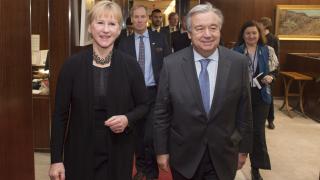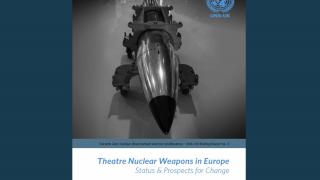
6 June 2013
UNA-UK’s third Towards Zero briefing report, written by Ted Seay, examines the future of theatre nuclear weapons in Europe.
It is a seldom-remarked fact that, 22 years after the end of the Cold War, NATO still deploys scores of nuclear weapons on the territory of five Allied nations in Europe: Belgium, Germany, Italy, the Netherlands, and Turkey. With relatively small-yield warheads and with ranges shorter than both intercontinental-range land-based and submarine-launched weapons, or intermediate-range weapons, these weapons are commonly referred to as tactical or theatre nuclear weapons (TNW). Despite being seen by many as obsolete, TNW remain a central component of NATO’s strategic defence. They also represent a strong point of diplomatic contention between the United States and its NATO allies, and the Russian Federation.
With the weapons themselves and their transport aircraft reaching the end of their deployment lives, Seay seeks to address what the future holds for TNW in Europe and the Alliance that they serve. He outlines the clash between the anti-TNW ideals of states such as Germany and Belgium, and the security concerns of eastern allies such as Turkey and the Baltic states. This discord is exacerbated by France’s emphasis on TNW as a guarantee of sovereignty, and a lack of leadership from the U.S.
Seay goes on to argue that the elimination of TNW from Europe is both desirable and achievable. He identifies the presence of TNW in Europe as a major barrier to cooperation between the U.S. and Russia on reducing their nuclear arsenals. He also deconstructs and refutes the key justifications for NATO TNW (deterrence, assurance and burden-sharing). Seay therefore calls for the Obama administration to assert leadership in persuading its allies of the need to remove TNW, whilst providing assurances that this will in no way diminish NATO security.
About the author
Ted Seay is a leading independent arms control and disarmament consultant. He is a policy consultant at the British American Security Information Council (BASIC), and a Senior Associate Fellow at the European Leadership Network. He was previously assigned to the U.S. Mission to NATO as a Political-Military Affairs officer, with responsibility for arms control, disarmament and missile defence.

